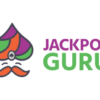In today’s society, a significant number of individuals engage in gambling activities without fully understanding its mechanics. It’s crucial to grasp how gambling operates before diving in, to avoid unexpected results. So, what is gambling precisely?
Gambling is the activity of risking money or valuables on an event with an uncertain outcome, with the intent to win additional money or material goods. This essentially is a game of chance, where outcomes can be either favorable or unfavorable. Gambling manifests in various forms like blackjack, poker, and casino games. While many find gambling enjoyable and thrilling, it’s important to be cautious and informed to prevent any potential addiction.
For some, gambling is a source of entertainment and excitement. For others, it transitions from a leisure activity to a serious addiction. When the urge to gamble becomes uncontrollable, and it starts negatively impacting one’s financial stability, education, family, and job, it becomes an addiction. This article will explore the causes, symptoms, phases, and strategies to prevent gambling addiction, including restrictions for underage gambling and resources for help.
Primary Causes of Gambling Addiction
Several factors contribute to gambling addiction. Many individuals are driven by a desperate need for money, the thrill of the game, and the allure of a higher social status, leading them to become addicted. Breaking away from gambling’s grip is often a daunting task.
Gambling addiction can become particularly severe when the individual has exhausted all their resources and is desperate to recover their losses. Ironically, more often than not, no amount of winnings can compensate for the losses, leaving many gamblers far from breaking even.
We’ll delve into some of the key reasons behind gambling addiction, including biological predispositions, the availability of gambling opportunities, and personal psychological factors:
- Biological Factors: Each individual’s unique physiology and genetics influence their behavior and intentions. This is why the appeal of gambling varies from person to person. Some may find it incredibly enticing, making it challenging to resist the urge to gamble. Without proper control, this urge can lead to regular gambling and, eventually, addiction.
- Availability of Gambling Opportunities: The allure of a quick win and the dream of instant wealth make gambling incredibly tempting. In today’s digital age, online gambling has become a significant source of addiction. Easy access to the internet allows individuals to gamble from the comfort of their homes. Moreover, countless websites provide 24/7 gambling opportunities. Offline gambling, such as in casinos, also leads many into addiction due to the thrill and the risk involved. Casinos are often compared to drug or alcohol addiction due to the intense psychological grip they can have on individuals. Many view offline gambling as a quick financial fix, leading to excessive spending and the hope of hitting the jackpot.
- Personal Factors: The experience of gambling is highly personal, and the reasons behind it vary widely. Gambling addiction is often linked to an individual’s psychological state. Some people turn to gambling to alleviate stress, escape negative emotions, or relieve boredom, making them more susceptible to addiction.
Understanding these factors is crucial in recognizing the early signs of gambling addiction and taking preventative measures. Whether seeking help for oneself or a loved one, numerous resources and counseling services are available to assist those affected by gambling addiction.
Key Indicators of Gambling Addiction
Gambling addiction often presents several indicators, but the most glaring is the overpowering compulsion to gamble. Below are the prevalent indicators or symptoms associated with gambling addiction:
- Neglect of Personal and Social Responsibilities: A significant indicator of addiction is when a gambler’s relationships with family and friends deteriorate, and they begin to associate primarily with fellow gamblers. Additionally, they start neglecting work, home, and other duties, becoming unreliable, forgetful, and solely preoccupied with gambling pursuits.
- Concealment of Gambling Activities: When individuals go to great lengths to hide their gambling from family and friends, it’s a clear sign of addiction. They might feel that their loved ones would disapprove, so they gamble in secret, further cementing their addiction.
- Financial Recklessness for Gambling: Often, gamblers find themselves engaging in financially irresponsible behaviors like borrowing or even stealing money to fuel their gambling. The elusive ‘big win’ keeps them hooked, constantly trying to recoup losses or win even more.
- Dependence on Loans for Gambling: Financial instability is a common plight for gambling addicts. They frequently borrow money from friends, family, or other sources, often without disclosing the real reason, to sustain their gambling habit.
- Gambling as the Sole Source of Pleasure: Many turn to gambling as a way to escape depression, anxiety, or boredom. The excitement of gambling becomes a substitute for joy, with the gambler spending an inordinate amount of time gambling, regardless of wins or losses.
- Obsession with Gambling: A hallmark of gambling addiction is the incessant preoccupation with gambling. Thoughts of gambling consume the individual, often leading to neglect of other aspects of their life and the development of additional issues.
Phases of Gambling Addiction
Gambling addiction doesn’t happen suddenly; it develops through distinct stages, transitioning from recreational to problematic to compulsive gambling. Here’s a closer look at the behavior in these distinct stages:
- Onset of Addiction: This stage is marked by an early big win leading to heightened excitement and a positive outlook towards gambling. Individuals start investing more time and money, increasingly viewing gambling as a significant part of their lives. An initial winning streak reinforces the gambling behavior, and they might start believing in their ‘special talent’ for gambling.
- Phase of Loss: During this stage, the gambler’s fixation with gambling intensifies. They begin to gamble in solitude, lie about their activities, and accrue debts. They chase their losses, hoping to recover quickly, which only leads to more time spent gambling and neglect of personal and professional responsibilities. Anxiety and depression start to emerge as financial and personal consequences accumulate.
- Desperation Phase: This is the crisis point where the gambler hits rock bottom. Feeling trapped and hopeless, they may turn to drugs or alcohol to alleviate the distress, and some might contemplate or attempt suicide. As financial pressures mount, they become desperate, possibly resorting to selling possessions or committing theft to fund their gambling. Loss of sleep, weight issues, and other health problems may arise. This stage is particularly perilous and requires immediate psychological intervention.
Guidance on Preventing Gambling Addiction
Avoiding gambling addiction is critical since it can activate the brain’s reward system, making cessation challenging. However, you can prevent gambling addiction with these strategies:
- Set a firm budget for gambling activities like casinos.
- To ensure you don’t exceed this amount, leave extra cash and credit cards at home.
- Monitor your losses.
- Remember, the odds are in favor of the house, not the gambler.
- Stop gambling as soon as you win, resisting the urge to continue.
- Understand that frequent gambling increases the likelihood of losses.
- Avoid borrowing money for gambling or trying to recover losses.
Proactive Steps for Gambling Prevention
“Prevention is better than cure” is an adage that holds true for gambling addiction. Consider these preventive measures:
| Register with GamStop | This free service allows you to self-exclude from online gambling sites within 24 hours. The exclusion duration varies based on your choice and puts you in control of your gambling activities. |
| Set time-outs in the casino | Gambling can distort your perception of time, regardless of winning or losing. Setting a gambling time limit ensures balance and time for other vital activities. |
| Establish deposit limits | This restricts the amount you can deposit into your account for gambling, ensuring you don’t spend beyond your budget. |
| Set loss limits | Determine a maximum amount you’re willing to lose to avoid unexpected and unaffordable losses. |
| Unsubscribe from gambling-related marketing emails | If you don’t want to receive gambling promotions, click “unsubscribe” on the emails or contact the gambling operators to request cessation of such marketing. |
| Request account lockdown | If you need a break from gambling, write to the support team of the gambling operator and ask them to lock your account for at least 6 months. |
| Opt for self-exclusion | Taking a break is crucial if you want to avoid addiction. Most gambling operators offer a self-exclusion facility, which limits access to your account for at least 6 months and can be permanent if needed. |
Obligations of Gambling Platforms
Gambling is often seen as a leisure activity meant to alleviate boredom or provide entertainment. However, when it escalates beyond mere fun to something more problematic, it may signal the onset of gambling addiction. Thus, online gambling operators are obliged to prioritize responsible gambling practices, not merely focusing on their profits.
Several gambling platforms have implemented various measures to assist their patrons in maintaining responsible gambling habits. These include:
- Protection for Vulnerable Gamblers: Gambling sites have a responsibility to protect their users, particularly those vulnerable to addiction. Without proper safeguards, individuals may become excessively absorbed in games like casinos, leading to addiction, financial drain, and disruptions in their daily lives.
- Setting Maximum Time and Monetary Limits: Operators should facilitate tools allowing gamblers to set limits on playtime and money spent on betting.
- Play Limit Tools: Gambling platforms should enable users to set limits on the amount of time or money they can spend playing over a certain period.
- Deposit Limit Tools: Users should have the option to set a maximum amount for deposits into their gambling accounts, helping to manage their spending.
- Bet Limit Tools: Sites should allow users to set limits on the amount they can bet in a single game or over a specified period.
- Loss Limit Tools: Operators can assist users in managing potential losses by providing tools to set loss limits for individual gaming sessions.
- Self-Assessment for Addiction: Given the potentially more severe nature of online gambling compared to traditional forms, platforms should offer self-assessment tools to help users gauge their gambling behaviors.
Gamblers should ask themselves if they:
- Are constantly preoccupied with gambling thoughts?
- Resort to lying to conceal their gambling activities from friends and family?
- Need to gamble with increasing amounts of money to achieve the desired excitement?
- Feel restless or irritable when trying to cut down on gambling?
- Have made repeated unsuccessful attempts to control, cut back, or stop gambling?
- Use gambling as a way to escape from problems or feelings of helplessness, guilt, anxiety, or depression?
- Have committed illegal acts such as theft to finance gambling?
Affirmative answers to any of these questions indicate a loss of control and a potential gambling problem. Gambling platforms have a duty to provide resources and tools to help users identify these behaviors and access support if needed.
Protecting Minors from Gambling
In today’s rapidly evolving world of global connectivity and internet advancements, gambling addiction poses a significant challenge to society, affecting both adults and children. Typically, the legal gambling age is 18 years and above, but the rise of online gambling platforms has made it easier for minors to falsify their age and access gambling content. Protecting young individuals from the dangers of gambling is crucial. Parents and guardians must be vigilant and proactive in preventing children from becoming ensnared in the world of gambling. Here are strategies to safeguard children from potential gambling addiction:
- Restrict Access to Websites: Establish a list of prohibited sites and closely monitor the types of games and content your children access on the internet.
- Educational Conversations: Have open discussions with your children about the legality and potential consequences of underage gambling.
- Monitor Household Finances: Regularly check your finances to ensure your children are not using your credit for gambling activities. Implement strict consequences for any violations.
- Review Children’s Games: Be aware of the content in the games your children play. Ensure they’re not exposed to gambling-themed games or content.
Support for Gambling Addiction
Gambling addiction can lead to severe financial crises and even suicidal thoughts. If you or someone you know is struggling with gambling, there are several resources available for help:
- Be Gamble Aware: This organization promotes responsible gambling and provides information to help people make informed decisions. They offer support and assistance for gambling-related issues.
- GamCare: GamCare offers free advice, information, and support for those affected by gambling problems. They provide various treatment options, both long-term and short-term, and offer flexible, confidential services.
- Gamblers Anonymous: This fellowship comprises men and women who share their experiences to solve their common problem and help others recover from gambling addiction. They provide face-to-face, online, and telephone support and recovery programs.





